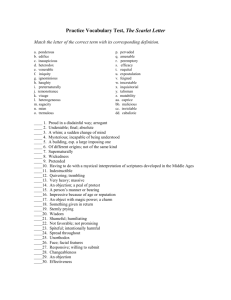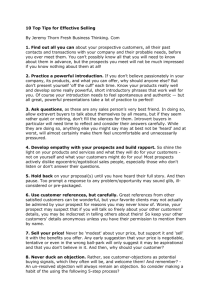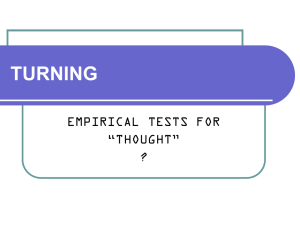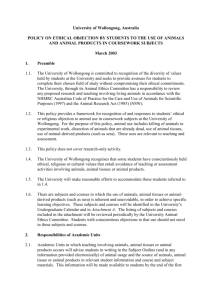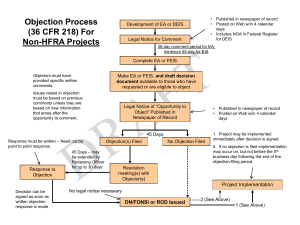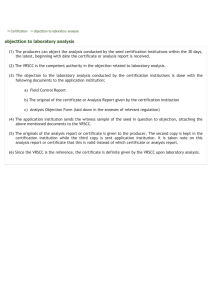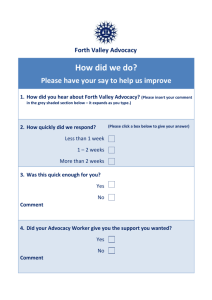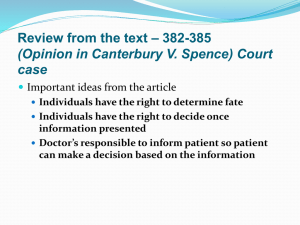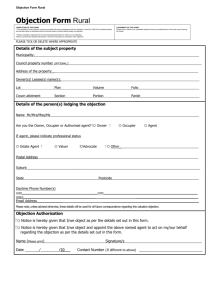Issue - Freedom Center
advertisement
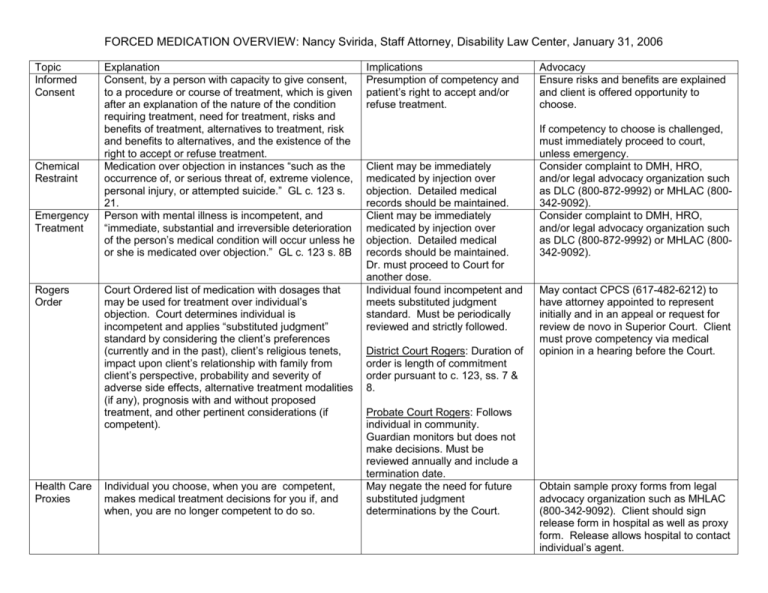
FORCED MEDICATION OVERVIEW: Nancy Svirida, Staff Attorney, Disability Law Center, January 31, 2006 Topic Informed Consent Chemical Restraint Emergency Treatment Rogers Order Health Care Proxies Explanation Consent, by a person with capacity to give consent, to a procedure or course of treatment, which is given after an explanation of the nature of the condition requiring treatment, need for treatment, risks and benefits of treatment, alternatives to treatment, risk and benefits to alternatives, and the existence of the right to accept or refuse treatment. Medication over objection in instances “such as the occurrence of, or serious threat of, extreme violence, personal injury, or attempted suicide.” GL c. 123 s. 21. Person with mental illness is incompetent, and “immediate, substantial and irreversible deterioration of the person’s medical condition will occur unless he or she is medicated over objection.” GL c. 123 s. 8B Court Ordered list of medication with dosages that may be used for treatment over individual’s objection. Court determines individual is incompetent and applies “substituted judgment” standard by considering the client’s preferences (currently and in the past), client’s religious tenets, impact upon client’s relationship with family from client’s perspective, probability and severity of adverse side effects, alternative treatment modalities (if any), prognosis with and without proposed treatment, and other pertinent considerations (if competent). Individual you choose, when you are competent, makes medical treatment decisions for you if, and when, you are no longer competent to do so. Implications Presumption of competency and patient’s right to accept and/or refuse treatment. Client may be immediately medicated by injection over objection. Detailed medical records should be maintained. Client may be immediately medicated by injection over objection. Detailed medical records should be maintained. Dr. must proceed to Court for another dose. Individual found incompetent and meets substituted judgment standard. Must be periodically reviewed and strictly followed. District Court Rogers: Duration of order is length of commitment order pursuant to c. 123, ss. 7 & 8. Probate Court Rogers: Follows individual in community. Guardian monitors but does not make decisions. Must be reviewed annually and include a termination date. May negate the need for future substituted judgment determinations by the Court. Advocacy Ensure risks and benefits are explained and client is offered opportunity to choose. If competency to choose is challenged, must immediately proceed to court, unless emergency. Consider complaint to DMH, HRO, and/or legal advocacy organization such as DLC (800-872-9992) or MHLAC (800342-9092). Consider complaint to DMH, HRO, and/or legal advocacy organization such as DLC (800-872-9992) or MHLAC (800342-9092). May contact CPCS (617-482-6212) to have attorney appointed to represent initially and in an appeal or request for review de novo in Superior Court. Client must prove competency via medical opinion in a hearing before the Court. Obtain sample proxy forms from legal advocacy organization such as MHLAC (800-342-9092). Client should sign release form in hospital as well as proxy form. Release allows hospital to contact individual’s agent.
